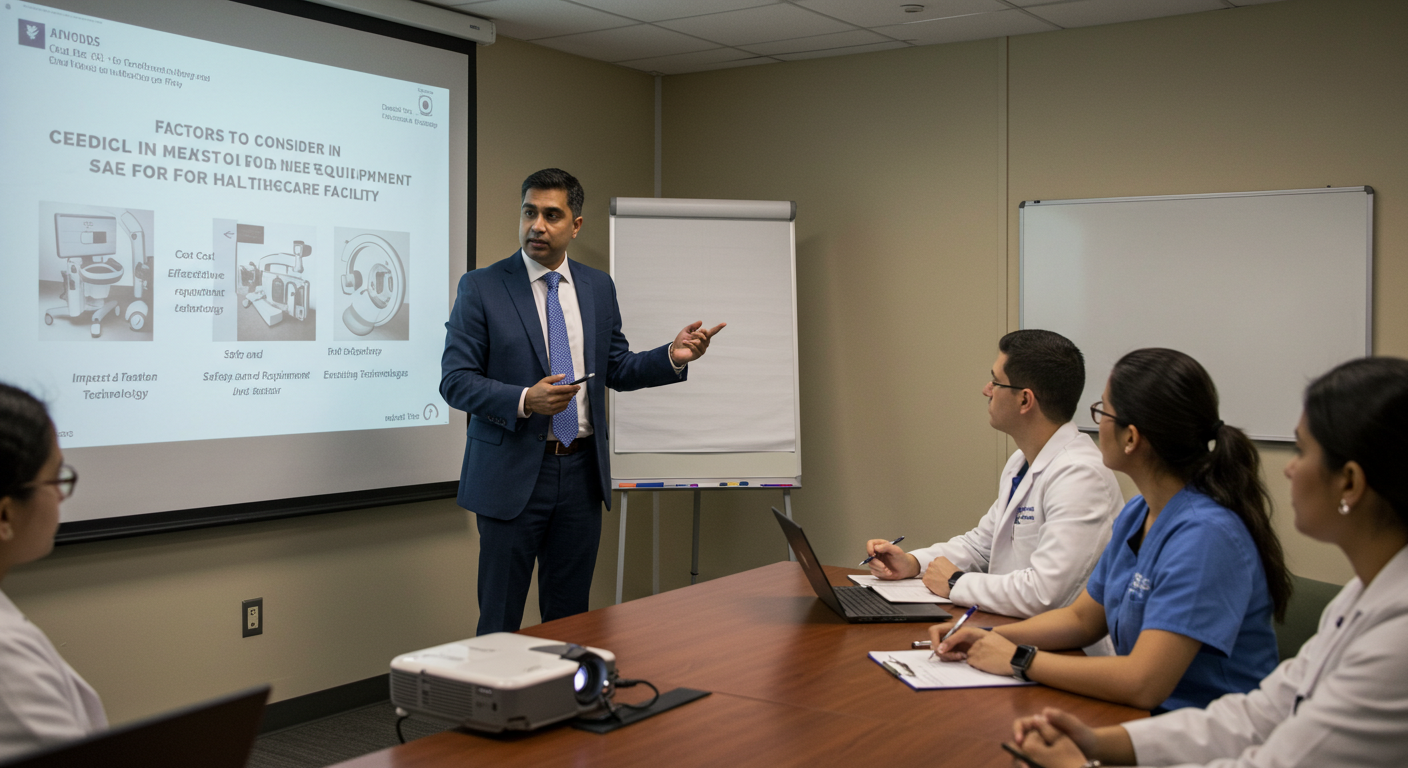When it comes to medical equipment sales, healthcare providers need to be extra cautious. You’re not just buying machines — you’re investing in tools that can save lives, speed up diagnosis, and improve patient outcomes. Whether you’re managing a small clinic or a large hospital, the equipment you choose plays a critical role in delivering safe and efficient healthcare.
But how do you make the right choice?
In this article, we’ll break down the top 5 factors that every healthcare facility should consider before purchasing medical equipment. These key points will help you avoid costly mistakes and ensure you’re getting the best value for your investment.
1. Quality and Certification Standards

The quality of medical equipment is non-negotiable. Faulty or substandard machines can lead to misdiagnosis, treatment delays, or even legal consequences. That’s why certification and compliance should be your first checkpoint in the medical equipment sales process.
Look for devices that are certified by reputable health authorities like:
- FDA (U.S. Food and Drug Administration)
- CE Marking (Europe)
- ISO 13485 for medical device quality management
- DOH or local health regulatory agencies
These certifications confirm that the equipment has passed safety and performance tests. Always request supporting documents and avoid suppliers who can’t provide them.
Remember: Certified equipment isn’t just safer—it’s often easier to insure and maintain regulatory compliance with.
2. Reputation of the Supplier or Manufacturer
You wouldn’t buy medicine from a questionable source, right? The same logic applies to medical equipment. Choosing the right supplier or manufacturer can save your facility from major headaches in the future.
Here’s what to look for:
- Years in the business: Established vendors have a proven track record.
- Client testimonials: Look for reviews from other hospitals or clinics.
- Support services: Do they provide training, installation, and technical support?
- Warranty and service contracts: Can they guarantee fast repairs or replacements?
Reputable suppliers often go the extra mile with training and on-call support. These services may seem optional, but they’re crucial when equipment malfunctions or requires calibration.
Pro Tip: Choose local or regional suppliers who can provide faster on-site support.
3. Total Cost of Ownership (TCO)
It’s easy to focus on the upfront price tag, but that’s just one part of the equation. The Total Cost of Ownership (TCO) gives you a clearer view of how much an equipment investment will really cost you over time.
TCO includes:
- Purchase price
- Delivery and installation
- Staff training
- Routine maintenance
- Consumables (test strips, reagents, etc.)
- Software updates and licensing fees
For example, a cheaper diagnostic machine may seem like a good deal at first, but if it requires expensive consumables or frequent servicing, the long-term cost may exceed that of a premium model.
Quick Tip: Ask for a full cost breakdown from your supplier, including recurring expenses.
4. Technology Integration and Compatibility
Modern healthcare systems rely on data sharing and digital integration. Your new equipment should easily connect with your existing infrastructure like:
- Electronic Health Records (EHR/EMR)
- Hospital Information Systems (HIS)
- Laboratory Information Management Systems (LIMS)
- Picture Archiving and Communication Systems (PACS)
Also, look for features such as:
- Cloud connectivity for remote monitoring
- Automated reporting and alerts
- Data analytics or AI integration
Compatibility ensures smooth data transfer, improves accuracy, and eliminates the need for manual entry—reducing the risk of human error.
Invest in tech-friendly equipment to future-proof your facility and stay ahead in the digital healthcare transformation.
5. After-Sales Support and Staff Training

Even the best equipment is useless if your staff can’t operate it properly. That’s why after-sales support and hands-on training should be included in your checklist when evaluating medical equipment sales offers.
Make sure the supplier provides:
- On-site or virtual product training
- User manuals and troubleshooting guides
- Preventive maintenance contracts
- 24/7 technical support or hotline
- Access to spare parts or replacements
Downtime can lead to delays in diagnosis and treatment, so having a responsive support team is crucial. In many cases, a supplier’s service capability is just as important as the equipment itself.
A responsive partner saves you time, money, and frustration.
Bonus Factor: Local Availability and Logistics
One thing many buyers overlook is logistics and delivery time. Especially for urgent facility upgrades or emergency replacements, equipment delays can affect patient care.
Ask your supplier:
- Do you have stock available locally?
- How long will delivery and installation take?
- Are technicians available in my region?
Having a local partner or regional distributor can significantly reduce lead time and improve service response when you need it most.
Why Medical Equipment Sales Are a Long-Term Investment
Purchasing medical equipment is a big decision. It’s not just about the machine—it’s about what it can do for your healthcare facility in the long run. Whether it’s for diagnostics, patient monitoring, rehabilitation, or surgical use, each piece of equipment contributes to:
- Improved patient care
- Operational efficiency
- Regulatory compliance
- Return on investment
So don’t treat this as a simple transaction. It’s a strategic investment in your facility’s success and reputation.
Get the Right Equipment from a Trusted Partner
Looking for a reliable source for medical equipment sales?
At Syracuse Biomedical Services, LLC, we specialize in supplying top-tier, certified medical equipment to clinics, hospitals, and healthcare providers nationwide. Whether you need diagnostic tools, rehabilitation machines, or specialized devices, we offer:
- High-quality equipment with full certifications
- Expert advice tailored to your facility’s needs
- Transparent pricing and flexible payment options
- Fast delivery and professional installation
- Full after-sales support and preventive maintenance
Ready to upgrade your facility? Get in touch with our team today to request a free consultation and custom quote.
Final Thoughts
Choosing the right equipment is one of the most important decisions for any healthcare facility. By focusing on quality standards, supplier reputation, true ownership cost, tech compatibility, and after-sales support, you can make a confident, informed decision.
Remember: Every piece of equipment you purchase affects your staff, your patients, and your bottom line.
Don’t just buy medical equipment—invest in solutions that grow with your healthcare facility.
For expert support, trusted service, and reliable medical equipment solutions, partner with Syracuse Biomedical Services. We’re committed to helping your clinic stay equipped, compliant, and ready to deliver the best care.

